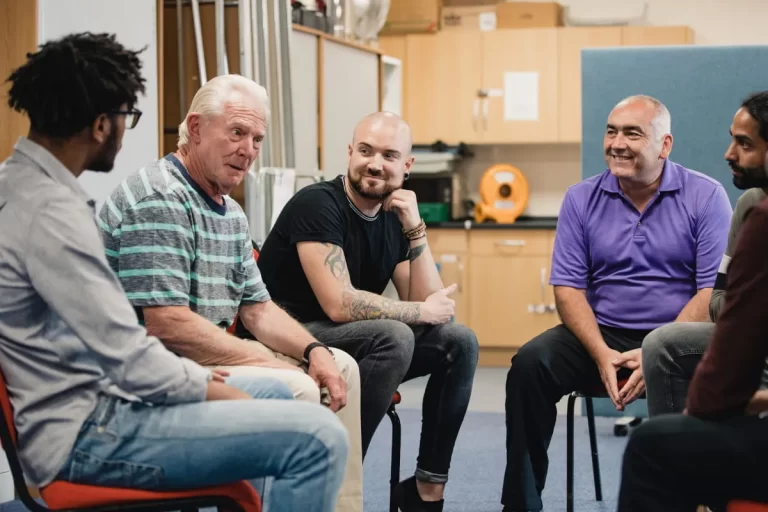Debunking Ten Myths About Mental Illness
Conversations about mental health and long-standing stigmas have never been more prominent. The impact of a fully globalized, digital world has prompted increased attention on mental health.
Despite the increasing societal embrace of conversations surrounding mental health, many myths about mental illness persist. These harmful stigmas make recovery more difficult for patients with mental illnesses. Thus, combating these myths offers the best weapon against harmful stigma.
Mental illnesses exist on a spectrum. While the majority of people pursue recovery independently, more intense illnesses may pose functional challenges.
For low-functioning mental illness patients, assisted living for the mentally ill offers an inclusive, safe environment for low-functioning patients. Struggling patients can considerably improve their quality of life by residing in facilities that assist them with daily tasks and provide a strong support community.
Ten Myths About Mental Health Conditions
While there are many different myths about mental illness, these ten popular stigmas contribute to a historically unhealthy treatment climate. Learning these misconceptions will make you an active participant in improving the conversation.
Myth 1: Mental Illness Is Rare
Many people believe that only significantly struggling patients qualify as having a mental illness. While only one in twenty-five Americans struggle with serious mental illness, one in five Americans will develop a mental illness in their life.
Myth 2: Mentally Ill People Will Never Lead a Productive Life
Many people falsely perceive that mental illness keeps you dysfunctional forever. Furthermore, some think that you won’t be able to perform daily functions like cooking, working, or cleaning yourself.
People with mental illness can lead a productive life even while struggling. Because of the spectrum of effects experienced from different cognitive disabilities, there is no “standard” functionality among mental disorders. Mental illnesses uniquely impact a person’s functionality.
Myth 3: Mental Illness Will Reduce Your Quality of Life Forever
In the past, many viewed mental illness as an institutionalized issue resembling experiences seen in popular movies and TV shows like One Flew Over the Cuckoo’s Nest. However, these examples paint a harmful picture of mental illness that creates a false belief that victims can never recover.
Research shows that recovery is not only possible but prominent for patients who take their mental health seriously. For example, 80% of senior citizens who receive treatment for depression make a significant recovery. This metric alone provides evidence that mental illness is not a life sentence.
Myth 4: Mentally Ill People Can’t Work
Similar to beliefs that mentally ill people can’t lead productive lives, another stigma persists that having a mental illness limits your ability to work. In most cases, the opposite is true.
Most employers note no difference between the productivity and efficacy of their neurodivergent and neurotypical employees. Furthermore, getting a job that adds meaning and structure to someone’s life could be an essential component of their recovery. Many human rights laws prohibit employers from discriminating against mentally ill applicants.
Myth 5: Children and Teens Cannot Have Mental Illnesses
Unfortunately, children and teens are not exempt from developing a mental illness. With increased access to social media and smartphones, young people face more risk factors than ever to struggle with their mental health.
These new societal dimensions contribute to increasing anxiety, depression, and suicide rates among teenagers. Fostering healthy, open dialogues about the importance of mental health from a young age can help adolescents and teens feel safer disclosing their struggles with trusted adults. Eliminating these stigmas can literally save young lives.
Myth 6: Mental Illness Results From Weakness
It’s an old myth that mental illness results from being mentally “weak” or “untough.” However, there are many situations where mental illness may be unavoidable.
Genetic and environmental factors out of your control may increase your propensity for developing a mental illness. Experiencing trauma at any age can trigger mental illness that may not have been present before. As a result, these experiences are not a choice but rather a result of the culmination of triggers, experiences, and chemical imbalances out of a person’s control.
Myth 7: Mentally Ill People Are “Victimizing Themselves”
The stigma that mentally ill people are “victimizing themselves” or “choosing to feel bad” perpetuates the idea that mental illness is a choice. While your response to mental illness remains a choice, developing a cognitive disorder is likely out of your control. Understanding environmental, social, and biological factors that trigger mental illness fosters healthier perspectives about the origin of these issues.
Myth 8: People with Mental Illnesses Are More Violent and Unstable
Perhaps one of the most harmful myths about mental illness is that victims of cognitive disorders have a greater propensity for violence or instability. In fact, it’s usually maltreatment and societal ostracization that perpetuate violence or instability from mentally ill people.
Immersing patients in communities that hold their humanity, worth, and value in high regard demonstrates the importance of positive treatment practices. These perspectives can be transformative and considerably improve a patient’s quality of life.
Myth 9: All Mental Illnesses Require Medication
It’s false that every mental illness requires medication to improve. Many forms of therapy and personal work can help people struggling with their mental health make considerable improvements. However, medications offer additional support for people with more serious issues and as a supplement to talk therapy and other treatment.
Myth 10: You Can Choose Not to Have a Mental Illness
Mental illness is not a choice. Therefore, you also can’t choose not to have one.
Your response to mental illness is your only choice. Seeking empathetic, empowering treatment, or immersing yourself or struggling loved ones in support communities can offer powerful solutions. Furthermore, assisted living facilities for people with mental illnesses offer high-level care for low-functioning patients who may need more support.
Receive Additional Support From Individual Care of Texas and Highland Assisted Living
Don’t let myths about mental illness prohibit you from seeking help for yourself or your loved ones. For more information about care for victims of severe mental illness, call Individual Care of Texas at (325) 675-5100, or Highland Assisted Living at (903) 356-4526 to explore beneficial, high-level care.






